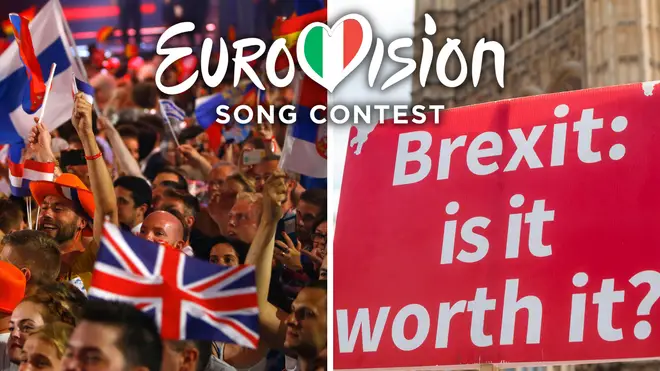
Ben Kentish 10pm - 1am
13 May 2022, 12:04 | Updated: 13 May 2022, 12:05

The lecturer behind the world's first university course on the Eurovision Song Contest Dr Dean Vuletic says Brexit isn't being held against the UK in the competition and that they "just need to send a great song".
Ahead of the final this Saturday, the European Broadcasting Union announced that no Russian act will participate in this year’s Eurovision Song Contest.
A statement posted on the competition website said the decision had been made after concerns that Russian participation would "bring the competition into disrepute".
The move comes after European countries threatened to boycott the competition if Russia were allowed to compete following its invasion of Ukraine.
Dr Dean Vuletic is a historian at the University of Vienna where he teaches the world's first university course on the contest. He is also author of Postwar Europe and the Eurovision Song Contest, the first-ever scholarly book on the topic.
"Do you think we are the most prickly of nations when it comes to Eurovision results?" Nick Ferrari asked Dr Vuletic.
"Right now yes, but not always. It hasn't always been the case," he replied.
"The United Kingdom had its golden age in Eurovision, let's say in the late 1960s and 1970s.
"It's not actually a political problem I think. One of the issues that British entries have faced is the fact that entries can be in any language now. So ever since 1999... you haven't had this advantage anymore of being able to sing in English."
Read more: This was the Eurovision question from Nick Ferrari that stumped Boris Johnson
Asked whether Britain has been "punished for Brexit" in recent years of Eurovision, Mr Veletic said: "Europeans still love to consume British popular culture, that hasn't changed. I don't think Brexit is being held against British entries, you just need to send a great song."

Jacob Rees-Mogg quizzed on Eurovision
Describing the university course he lectures on, Mr Vuletic said: "We learn about issues such as nationalism, prosperity, war, European integration of course is perhaps the overriding theme.
"But then we learn about issues such as Anglo-Americanisation, European popular culture became dominated by Anglo-American models in the post war period.
"And now more recently the issues concerning gender and sexuality."
Read more: U-turn on windfall tax? Boris Johnson refuses to rule out levy on oil giants profits